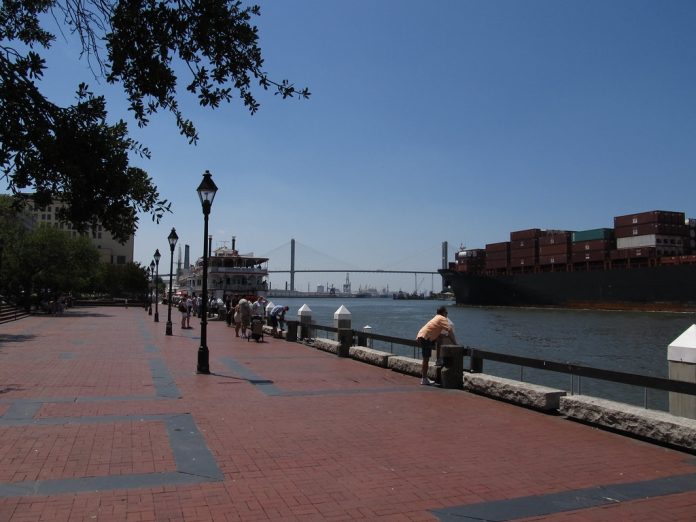Georgia shouldn’t block the development of private SeaPoint Terminal, which should be allowed to compete and fill supply-chain gap.
by Jay Derr
The Georgia Ports Authority could have pursued a public-private partnership (P3) to finance the development of the private port. A private operator might have leased the new terminal for 30-to-70 years and used the fees they collected to pay for property acquisition. They also might have been able to bring experience from remediating other brownfield sites to clean up contaminants more cost-effectively.
However, the Georgia Ports Authority was not interested in a public-private partnership and decided not to buy the property. Now, Reed Dulany, president of Dulany Industries and a Savannah local, is planning to build a private port on the site: SeaPoint Terminal. However, GPA has attacked the private port, claiming it would be anti-competitive because the port wouldn’t have to follow the same rules as the Port of Savannah and would overburden Savannah’s road and rail networks.
Georgia Ports Authority Chief Executive Officer Griff Lynch submitted a letter to the United States Army Corps of Engineers, the governing body that issues permits for port developments, protesting the development’s focus compared to the permit it had requested. As a result, the Army Corps of Engineers suspended SeaPoint’s permit, saying they were not abiding by the language of the permit.
SeaPoint was focused on developing containerized cargo without expressly mentioning that as the intent of the development in its permit request. To rectify this, Dulany Industries had two options: Apply for a permit modification and alter the permit request to mention containerized cargo or agree with the Corps’ interpretation and build SeaPoint to accommodate multiple types of cargo such as bulk and breakbulk instead of a strict focus on container movement. Dulany chose the latter, and the Corps of Engineers reinstated SeaPoint’s permit.
SeaPoint has multiple parties interested in becoming tenants, according to the Savannah Economic Development Authority. The interest matches Dulany’s vision for the development being a “flexible canvas,” as opposed to a focused and specialized terminal exclusively for containerized cargo to be moved ashore. The primary selling point of the area is its strategic position downstream from the Talmadge Bridge, making it easier for taller container vessels to dock and offload without traveling under the bridge.
Even if SeaPoint does compete with the Port of Savannah’s niche for container vessel traffic, consumers could benefit from competition. The Port of Savannah’s cargo throughput has been increasing year-over-year already, though vessel dwell times (the time a container vessel stays at port for off- and on-loading, being secured, discharged, and other activities) in 2021 and 2022 are still far higher than the three years preceding. In 2022, the Port of Savannah’s average container vessel dwell time was 36.5 hours, surpassing the national average of 34.6 hours. The Port of Savannah’s dwell times are visualized in Figure 1 below.
Figure 1: Port of Savannah, Georgia Container Dwell Time (Hours)
Source: “Port Profiles 2024 Savannah, GA Port of,” U.S. Department of Transportation, explore.dot.gov.
If the Port of Savannah is worried about competitiveness, it should focus on lowering vessel dwell times by determining where onshore services can be improved, be that increased stevedoring efficiency or otherwise.
Alternatively, finding the means of building and developing a terminal downstream past the Talmadge Bridge would help with attracting larger vessels, but that opportunity seems to have come and gone. The Ports Authority is trying to address the problems presented by the Talmadge Bridge by working with the Georgia Department of Transportation to raise the bridge’s roadway to allow passage of taller container vessels beneath.
Given the demonstrated cargo growth in the area and the value of competition, Georgia Ports Authority should allow Dulany Industries to develop the private SeaPoint Terminal. Instead of being strong-armed out of existence by a monopolistic government agency, SeaPoint should be free to sink or swim based on the viability of the infrastructure it develops and the customers it attracts.











